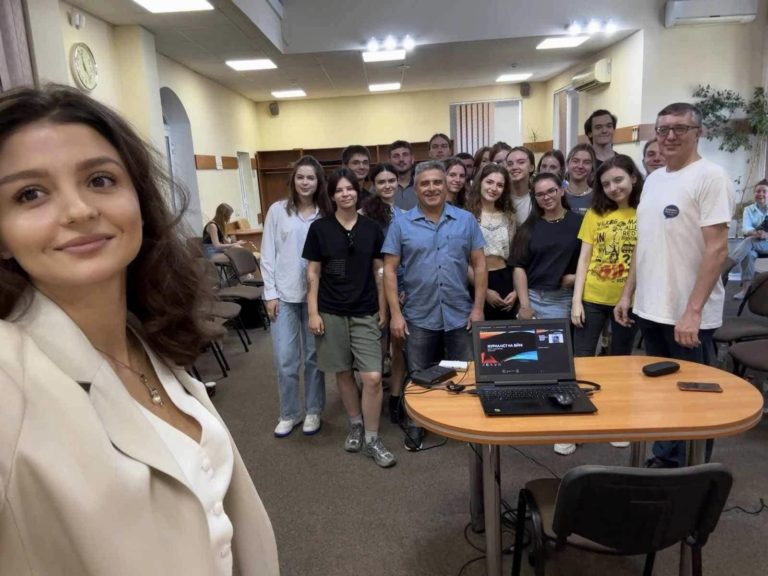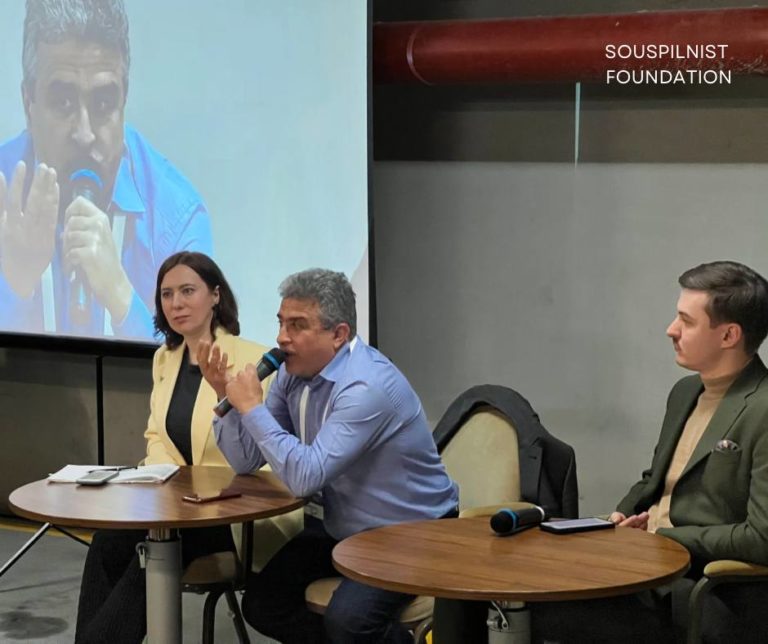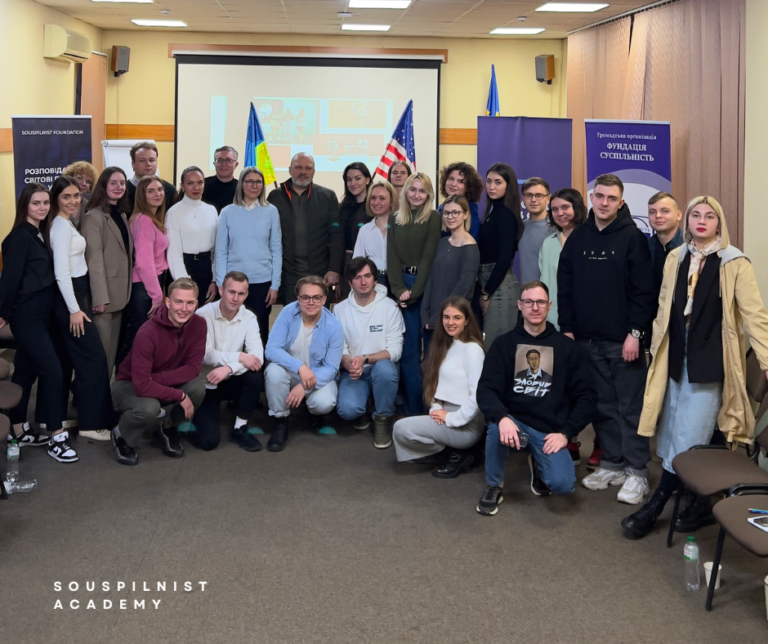In today’s information world, a media manager must multitask and be knowledgeable in all aspects, especially during wartime. There is no universal formula for implementing a successful media project: the main thing is to understand that in the media industry, the business process is a tool, not the goal, emphasized the legendary media manager Tetiana Kyselchuk during the second training session of the “Media Mobility Hub in Wartime” program.
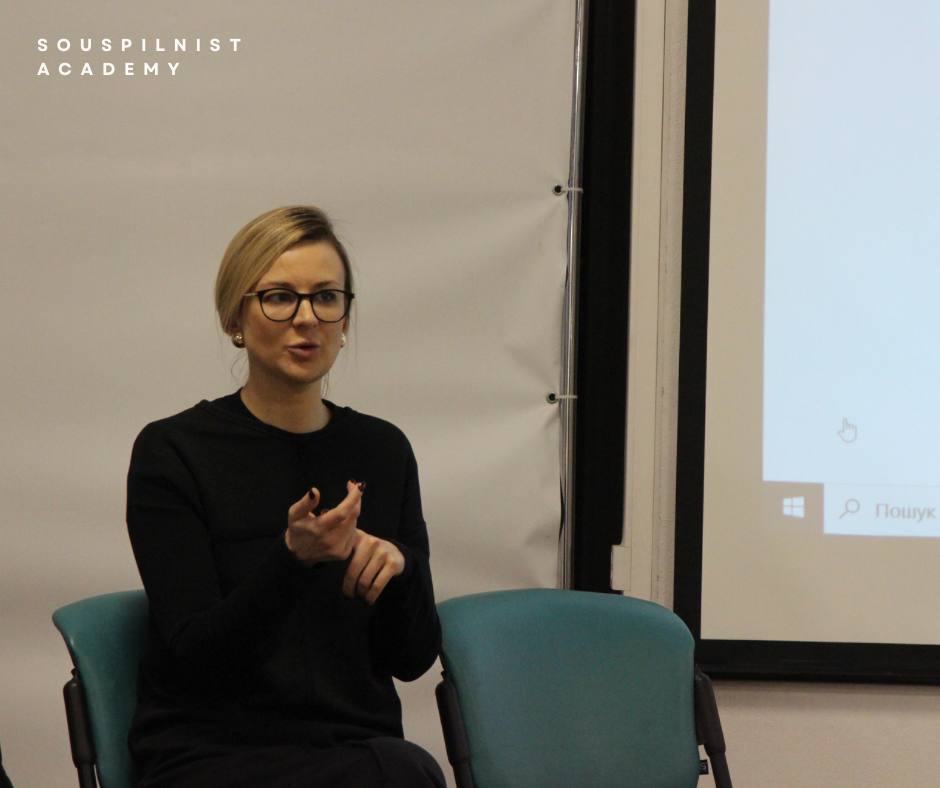
On this day, the coaching team focused on high work dynamics, providing practical advice, focusing on skill development, and addressing the most acute questions and remarks. At times, the training shifted into intellectual reconnaissance with practical exercises.
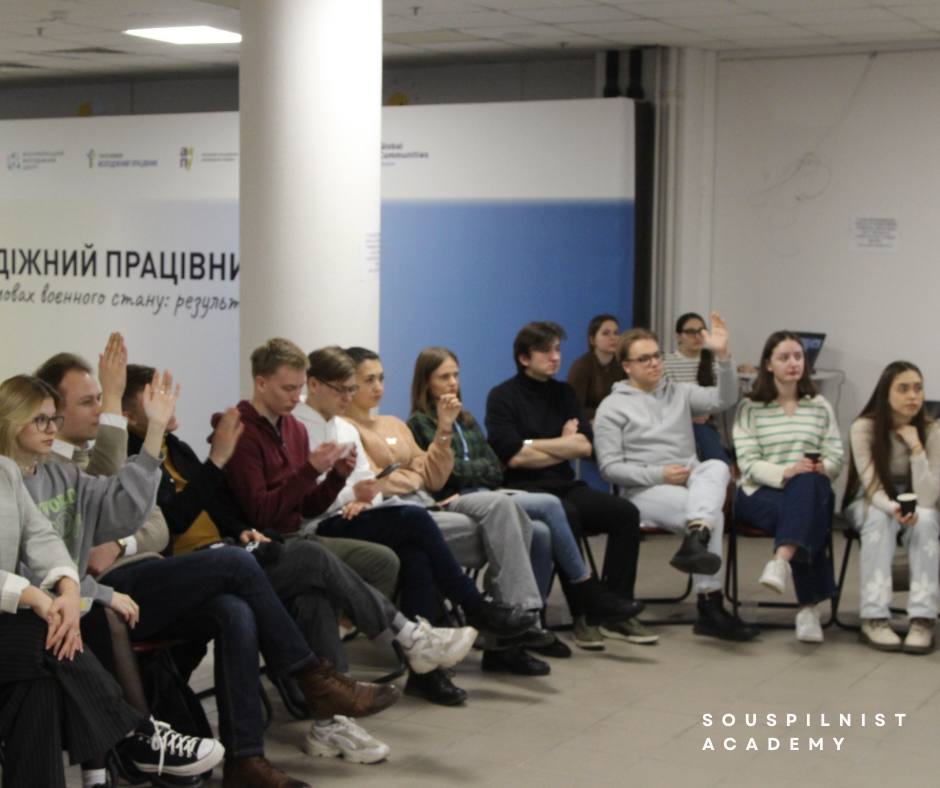
Ihor Rozkladai, deputy director of the Center for Democracy and Rule of Law, extensively discussed the role of social networks in war, how journalists can counter industrial giants, why TikTok poses potential informational danger, and how to recognize hate speech. He stressed that Meta bases its rules on four pillars: authenticity, safety, privacy, and dignity. Many cases fall under the category of hate speech, so it’s worth familiarizing oneself with them and using this knowledge in practice. Blur, for example, is not a sanction but a compromise, and it’s important to learn to see the differences.
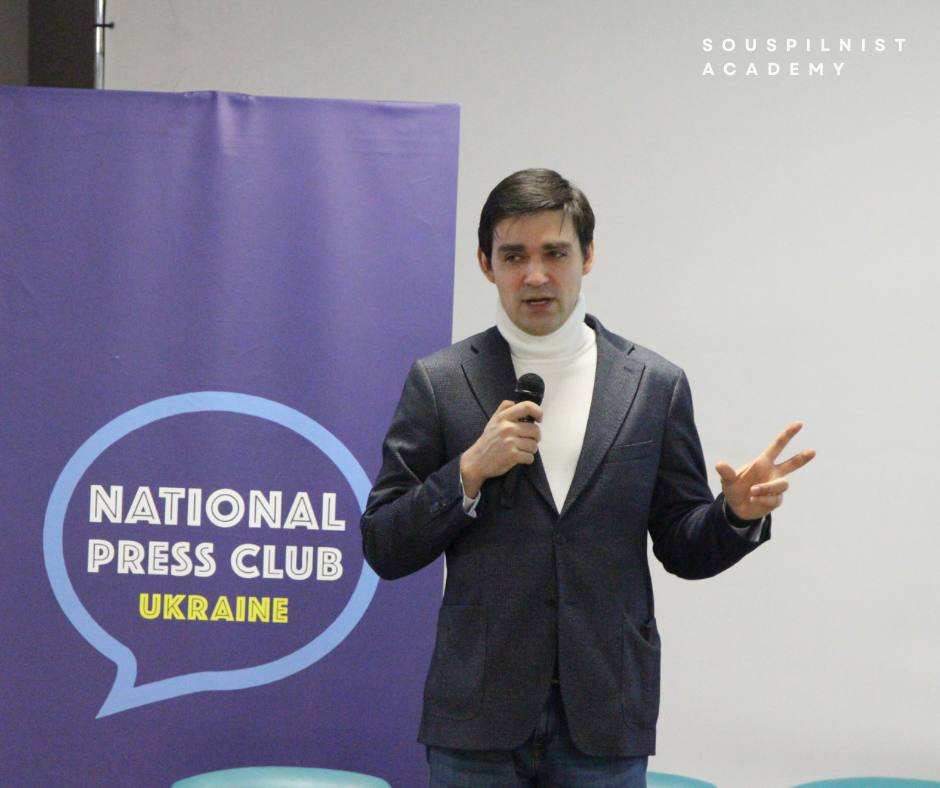
Dmytro Tuzov, a media expert from the Souspilnist Foundation and a host at Radio NV, shared insights on combating aggressive Russian disinformation. According to him, Russian propagandists come up with primitive fake news to test the effectiveness of their own information influence system, identify weaknesses in the civilized world’s information security system, probe loyal resources, and “useful idiots” for future large-scale PSYOPs.
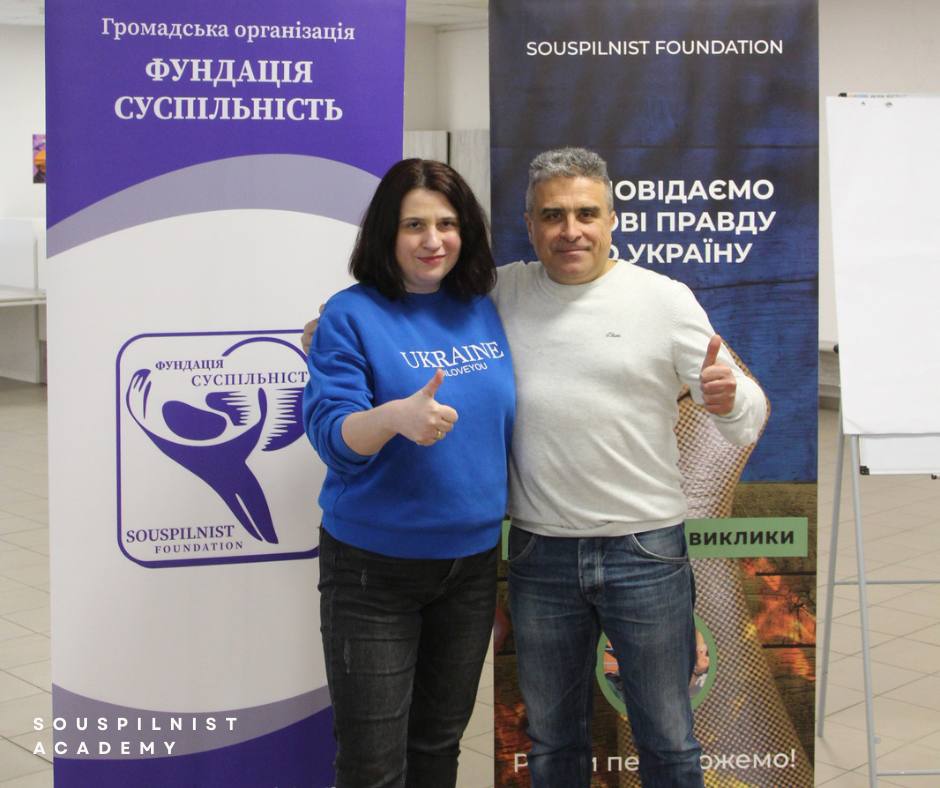
Olha Huzhva from Internews Ukraine discussed our profession’s most crucial safety aspects. She conducted a brainstorming session with the Hub participants on how to act in dangerous situations. Her words will stick with and come in handy for everyone who attended the training workshop: a journalist always needs to approach the preparation for travel to combat zones carefully and responsibly because their life depends on it. The main task in a crisis situation is to survive, and security thinking means considering even the worst-case scenarios and having two to three plans on how to act in that situation.
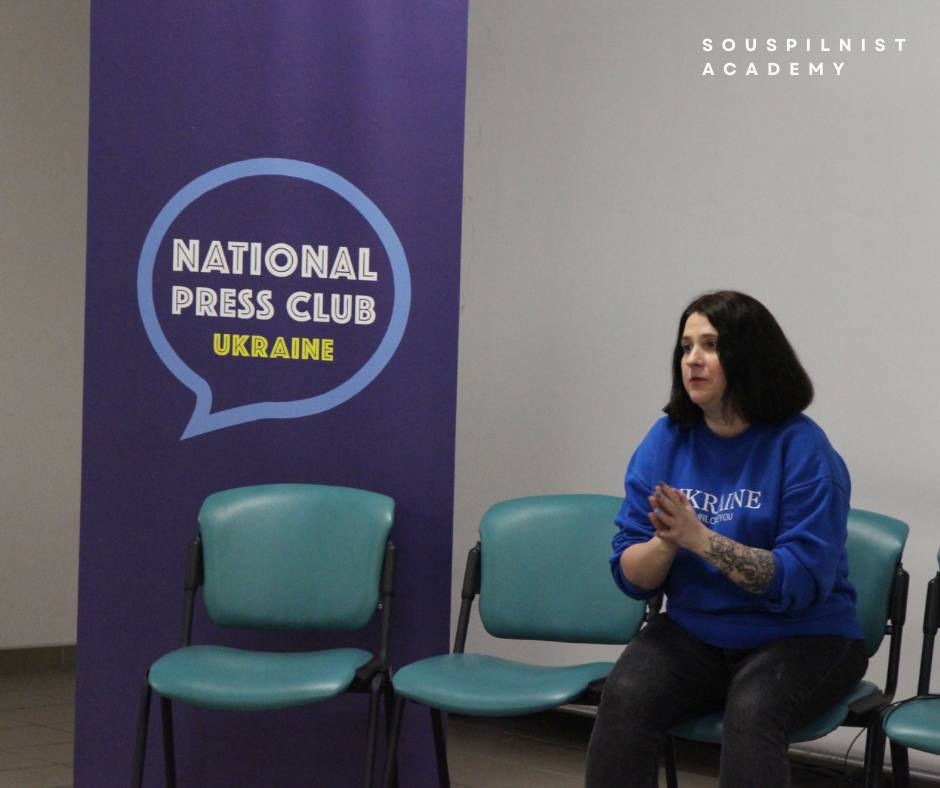
We thank our colleagues for their cooperation! We especially want to acknowledge the excellent venue for conducting this intensive training session, thanks to the powerful partnership with the All-Ukrainian Youth Center.
Today, the first rule for every Ukrainian is to be well-trained, prepared for work, and ready to fight. The 25th Media Mobility Hub in Wartime in Kyiv continues.
